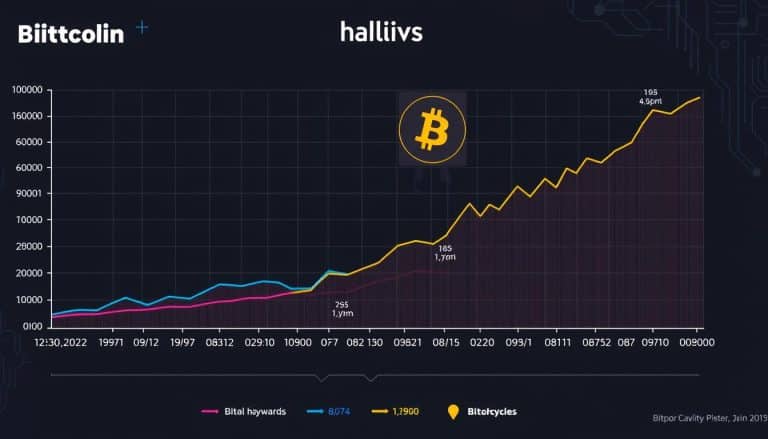Xrp For Payment Settlements
Ripple is a digital payment network that was created to enable secure, fast, and cost-effective payments between two parties. It works with XRP as its native cryptocurrency, which serves as a bridge currency for transactions. XRP is increasingly being adopted by companies around the world for payment settlements due to its many advantages. This article will explore the benefits of using XRP for payment settlements, why companies are choosing it, XRP in the global payments market, the security and regulatory compliance features, Ripple’s growing network of partners and what the future holds for XRP payments.
Overview of the Ripple Network
By leveraging the Ripple Network, a decentralized payment settlement system which utilizes XRP as its base currency, an efficient and cost-effective means of facilitating transactions across borders is made available to all. The network is powered by a distributed ledger technology that enables users to securely record transactions within the platform with little to no fees. This technology allows for faster transfer times compared to traditional banking networks while also providing further security for customers who use XRP as their digital asset of choice. Furthermore, the XRP functionality offers the ability for users to convert their assets into different currencies with minimal transaction fees and increased liquidity. As such, this provides an optimal solution for those seeking quick payments or remittances across international boundaries without incurring high costs in foreign exchange fees. In conclusion, the Ripple Network has enabled users around the world to take advantage of XRP’s digital asset usage for fast and secure payment settlements.
Advantages of XRP for Payment Settlements
Utilizing a digital asset with fast transaction times and low fees for processing transactions can provide advantages to payment settlements. XRP, the native token of the Ripple Network, is one such asset that is making waves in the payments industry due to its cost savings, speed advantage, and global reach:
- Transactions are settled quickly on the Ripple Network; some sources report that it takes just 4 seconds for a transaction to be completed.
- Fees associated with using XRP are considerably lower than those charged by traditional payment settlement systems like SWIFT or ACH.
- The Ripple Network is available in many countries across the world, allowing businesses to easily send money without worrying about cross-border payments and foreign exchange costs.
These advantages make XRP an attractive option for companies looking to reduce costs while speeding up their payment settlements process. This has resulted in several companies choosing XRP as their preferred form of settlement currency – a trend that looks set to continue into the future.
Why Companies are Choosing XRP
The increasing demand for a faster and more cost-efficient method of transferring funds has created a surge in popularity for XRP, shimmering like a beacon on the horizon. Companies are choosing XRP due to its advantages over traditional payment systems, with its ability to facilitate transactions in seconds at reduced costs. With this technology, businesses have greater control and visibility over their payments as well as being able to enjoy low transaction fees compared to other forms of payment infrastructure. Additionally, its cryptographic security ensures that all transfers are secure. Thus, companies can rest assured that they will not be exposed to any fraudulent activities or financial losses while using XRP for payments. With these benefits, it’s easy to see why companies are turning towards XRP for their payment settlements needs. As the technology continues to evolve and more companies take advantage of it, there is no doubt that XRP will become even more widely used within the global payments market.
XRP in the Global Payments Market
Rising demand for a more efficient and cost-effective payment infrastructure has led to the adoption of XRP as a viable solution in the global payments market. This digital asset offers instant payments and cross border remittances, allowing financial institutions to reduce costs and increase liquidity. With XRP, businesses can access an open source platform that provides up-to-date settlement solutions, enabling them to easily transact with international customers without long wait times or high fees. This makes it easier for companies to do business across borders while reducing their overhead expenses. With these advantages, XRP is quickly becoming a popular choice for both large and small businesses looking for reliable payment solutions in the global market. As such, its use in the payments sector is expected to continue growing as more organizations recognize its potential benefits. Consequently, this will likely lead to increased adoption of XRP by financial institutions seeking improved transaction speeds and lower costs.
The Benefits for Financial Institutions
Adopting XRP into their payment infrastructure offers financial institutions numerous benefits, such as greater liquidity and faster transaction speeds. Key among these advantages is the reduced costs incurred by transactions facilitated through XRP. With its high throughput of 1,500 transactions per second, it is capable of improving the speed and efficiency of global payments in comparison to current methods. Furthermore, this helps to reduce the cost associated with cross-border payments due to its low fee structure and real-time settlements which eliminates additional fees from banks or third parties. A further benefit for financial institutions is improved scalability due to its fast settlement times – typically taking seconds rather than minutes or hours – providing an edge over other cryptocurrencies. To maximize these benefits, financial institutions must ensure that they are compliant with security and regulatory requirements for digital currency transactions. This transition from previous methods requires a comprehensive understanding of both existing laws governing cryptocurrency and any new regulations which may be imposed in future.
Security and Regulatory Compliance
Compliance with security and regulatory requirements for digital currency transactions is increasingly important for financial institutions to maximize the benefits of XRP, with a reported 75% of cryptocurrency exchanges lacking basic compliance with regulations. Financial institutions must be aware of the privacy implications and compliance hurdles associated with digital currency transactions in order to ensure that they are in compliance with applicable laws. In addition, Ripple’s advanced encryption technology provides an extra layer of security to protect users from potential cyberattacks, allowing customers to securely store their XRP tokens and transact safely. As Ripple’s growing network of partners continues to expand, its secure payment solutions provide greater assurance for financial institutions when conducting cross-border payments using XRP.
Ripple’s Growing Network of Partners
The security and regulatory compliance of Ripple’s XRP has been a pressing concern for the digital asset, but its growing network of partners is beginning to show that it can be used safely and securely in cross-border payments. The blockchain-based technology behind Ripple’s XRP allows it to serve as an efficient payment mechanism for banks, corporations and other financial institutions. Its ability to quickly move large sums of money across borders makes it ideal for international transactions.
Recent technology advancements have enabled Ripple’s XRP platform to become even more powerful. Its distributed ledger system allows users to send money overseas with near-instant settlement times, making it one of the most secure methods available for global financial transactions. Additionally, its fees are much lower than traditional banking systems, resulting in substantial savings on cross border transfers. As the use of Ripple’s XRP continues to expand through its increasingly diverse network of partners, so too does its reputation as a reliable payment solution that offers greater levels of safety and convenience than other methods. This growth suggests that Ripple’s XRP could play an important role in streamlining international payment settlements in the future.
The Future of XRP Payments
As the use of blockchain-based technology continues to expand, Ripple’s XRP platform has the potential to revolutionize global financial transactions by providing a more secure and efficient payment system. The XRP platform is designed to facilitate cross border payments quickly and securely while also leveraging smart contracts for added security. This could be beneficial for businesses that need to transfer money across borders as it eliminates the need for additional fees and lengthy wait times associated with traditional banking methods. Additionally, it offers enhanced privacy features that can help protect sensitive information during financial transactions.
In addition, the use of XRP in payment settlements could open up new opportunities for businesses around the world. For example, it could make large international purchases cost effective by eliminating expensive currency exchange rates or provide small businesses access to low-cost loans from foreign investors. Furthermore, this technology could potentially reduce costs related to fraud and aid in reducing money laundering activities since each transaction is recorded on an immutable ledger. This could ultimately lead to greater economic growth and stability around the world as governments gain increased visibility into their citizens’ finances.
Frequently Asked Questions
What is the current market value of XRP?
XRP is currently valued at around $0.30 USD, making it one of the most popular cryptocurrencies in terms of market capitalization. Despite its international adoption and scalability issues, XRP continues to be a viable option for payment settlements thanks to its resilience and quick transactions.
How does XRP compare to other payment settlement options?
XRP stands out as a payment settlement option due to its enhanced security and cost efficiency when compared to other methods. It is capable of providing safe transactions with low costs, making it an attractive choice for those looking for a reliable and cost-effective solution.
What are the risks associated with using XRP for payment settlements?
The decentralization of liquidity and trust issues when using XRP for payment settlements are two major risks associated with this form of payment. Users must be aware of the potential dangers before making any transactions, as well as understand the implications that come with such a decentralized system.
Who are Ripple’s current partners?
Ripple has partnered with numerous money transfer companies to utilize their blockchain technology for payment settlements. These partners include MoneyGram, SBI Remit, Western Union, and more. Ripple’s technology is quickly becoming an industry leader in the financial services sector.
Can XRP be used for cross-border payments?
Ripple’s XRP cryptocurrency enables cross-border payments, with more than 100 billion XRP transacted monthly. Utilizing a decentralized, distributed ledger, XRP facilitates quick and reliable transactions at low costs compared to traditional methods. As such, Ripple is becoming increasingly popular for international payments, allowing businesses and individuals to send money globally in a much more efficient manner.






 Bitcoin
Bitcoin  Ethereum
Ethereum  Tether
Tether  XRP
XRP  Solana
Solana  USDC
USDC  TRON
TRON  Dogecoin
Dogecoin  Lido Staked Ether
Lido Staked Ether  Cardano
Cardano  Wrapped Bitcoin
Wrapped Bitcoin  Hyperliquid
Hyperliquid  Bitcoin Cash
Bitcoin Cash  Wrapped stETH
Wrapped stETH  Sui
Sui  Chainlink
Chainlink  LEO Token
LEO Token  Avalanche
Avalanche  Stellar
Stellar  USDS
USDS  Toncoin
Toncoin  Shiba Inu
Shiba Inu  WETH
WETH  Litecoin
Litecoin  WhiteBIT Coin
WhiteBIT Coin  Wrapped eETH
Wrapped eETH  Hedera
Hedera  Binance Bridged USDT (BNB Smart Chain)
Binance Bridged USDT (BNB Smart Chain)  Monero
Monero  Ethena USDe
Ethena USDe  Bitget Token
Bitget Token  Polkadot
Polkadot  Coinbase Wrapped BTC
Coinbase Wrapped BTC  Uniswap
Uniswap  Aave
Aave  Pepe
Pepe  Pi Network
Pi Network  Dai
Dai  Ethena Staked USDe
Ethena Staked USDe  Aptos
Aptos  OKB
OKB  Bittensor
Bittensor  BlackRock USD Institutional Digital Liquidity Fund
BlackRock USD Institutional Digital Liquidity Fund  Jito Staked SOL
Jito Staked SOL  NEAR Protocol
NEAR Protocol  Internet Computer
Internet Computer  Cronos
Cronos  Ethereum Classic
Ethereum Classic  Ondo
Ondo